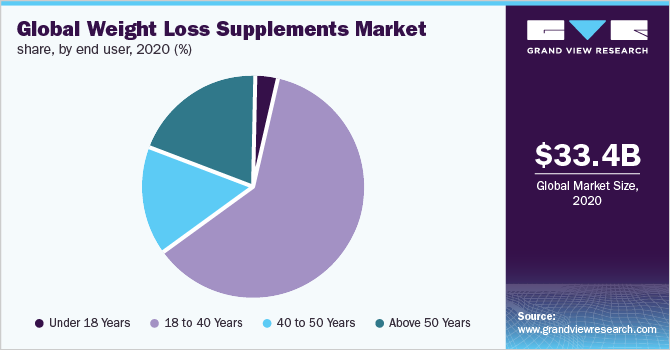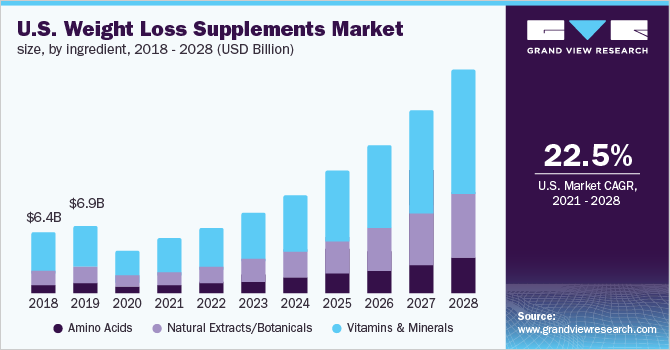Are you thinking of trying weight loss supplements to achieve your fitness goals? Before you jump on the bandwagon, it is important to know what these supplements are and if they are safe for consumption.
In this blog post, we will introduce you to weight loss supplements and their common ingredients. We will also discuss the different types of weight loss supplements available in the market.
By the end of this post, you will have all the information needed to make an informed decision about weight loss supplements.
Introducing Weight Loss Supplements
Weight loss supplements have grown increasingly popular over the years as people look for an easy fix to their weight loss journey. However, it is important to understand what weight loss supplements are and how they work. Weight loss supplements can come in various forms such as pills, powders, or extracts and are meant to aid in weight loss by boosting metabolism, suppressing appetite or blocking fat absorption. It is important to note that weight loss supplements are not regulated by the FDA in the same way prescription medications are, meaning there is a risk associated with their use.
What are Weight Loss Supplements?
Weight loss supplements are dietary supplements that are marketed to help individuals lose weight. They contain a combination of ingredients, such as herbs and vitamins, which are believed to aid in weight loss by boosting metabolism and reducing appetite.
Additionally, using weight loss supplements should also be accompanied by a healthy diet and regular exercise routine for best results. Natural supplements like green tea extract or fiber supplements may be safer alternatives to traditional weight loss supplements.

Common ingredients in weight loss supplements
Weight loss supplements can contain a variety of natural and synthetic ingredients that are believed to aid in weight loss. Some common natural ingredients include:
- Green tea extract
- Caffeine
- Garcinia cambogia
However, it’s important to note that synthetic ingredients such as ephedrine have been banned in some countries due to safety concerns.
Types of weight loss supplements
There are many different types of weight loss supplements on the market. Some of the most popular types include:
- Fat burners: These supplements contain ingredients that are designed to boost your metabolism and help you burn more calories. Some common ingredients include caffeine, green tea extract, and yohimbine.
- Appetite suppressants: These supplements contain ingredients that are designed to help you feel full and satisfied, so you eat less. Some common ingredients include glucomannan, hoodia gordonii, and chromium picolinate.
- Carb blockers: These supplements contain ingredients that are designed to prevent the absorption of carbohydrates in your body. Some common ingredients include white kidney bean extract and green tea extract.
- Thermogenics: These supplements contain ingredients that are designed to increase your body’s core temperature, which can help you burn more calories. Some common ingredients include caffeine, green tea extract, and capsaicin.
- Fiber supplements: These supplements contain fiber, which can help you feel full and satisfied, so you eat less. Some common ingredients include psyllium husk and glucomannan.
It’s important to note that while these supplements may help with weight loss, they should not be relied upon as a sole solution. A healthy diet and regular exercise are still the most effective ways to lose weight and maintain a healthy weight long-term.
Are Weight Loss Supplements Safe?
As with any dietary supplement, weight loss supplements come with potential risks and concerns. While they may seem like an easy solution to shedding unwanted pounds, it’s crucial to do your research and consult with a healthcare professional before trying them. Supplements are not regulated by the FDA, which means that their safety and effectiveness are not always guaranteed.
Even natural supplements can have side effects or interactions with other medications or health conditions. In general, a healthy diet and exercise plan should be the first approach to weight loss before considering supplements. By taking a cautious approach and educating yourself on the potential risks and benefits, you can make an informed decision about whether weight loss supplements are right for you.
-
Understanding the FDA’s role in regulating supplements
The FDA plays a crucial role in regulating the safety of dietary supplements, including weight loss supplements. However, unlike prescription drugs, supplements do not need to undergo rigorous testing and approval before being sold to consumers. This lack of oversight means that some weight loss supplements may contain harmful ingredients or have inaccurate labeling, putting consumers at risk.
-
Identifying safe weight loss supplements
When it comes to identifying safe weight loss supplements, there are a few key factors to consider before making a purchase. One of the most important things to look for is third-party testing and verification. Supplements that have been tested by independent organizations for safety and efficacy are generally considered more trustworthy than those that haven’t. Additionally, it’s important to be wary of supplements that make lofty or unrealistic claims about their effectiveness in helping with weight loss.

Scientific Research on Weight Loss Supplements
There is a significant amount of scientific research on weight loss supplements. Many studies have been conducted to investigate the effectiveness, safety, and potential side effects of various weight loss supplements.
Some of the most commonly studied weight loss supplements include:
- Green tea extract: Studies have shown that green tea extract can help increase metabolism and promote fat oxidation, resulting in weight loss.
- Garcinia cambogia: This supplement has been studied for its ability to inhibit the enzyme responsible for converting carbohydrates into fat, leading to weight loss.
- Conjugated linoleic acid (CLA): CLA has been shown to reduce body fat and increase lean body mass in some studies.
- Forskolin: This supplement has been studied for its potential to increase the breakdown of fat cells and promote weight loss.
- Hydroxycitric acid (HCA): HCA is found in the fruit of the Garcinia cambogia plant and has been studied for its potential to suppress appetite and inhibit the storage of fat.
While some studies have shown promising results for these supplements, many have also found no significant weight loss benefits or have reported adverse effects. It’s important to note that supplements should not be relied upon as the sole method for weight loss and should be used in conjunction with a healthy diet and regular exercise.
Additionally, it’s essential to speak with a healthcare provider before starting any new supplement regimen to ensure safety and avoid potential interactions with other medications or health conditions.

Factors to Consider Before Trying Weight Loss Supplements
If you are considering weight loss supplements to aid in your weight loss journey, it is important to be well-informed and to consider the following factors:
- Safety: Before taking any weight loss supplement, it is crucial to ensure that it is safe for you. It is recommended that you consult with a healthcare professional before starting any supplement regimen, especially if you have any pre-existing health conditions, are taking any medications, or are pregnant or breastfeeding.
- Effectiveness: It is important to note that not all weight loss supplements are effective, and some may even be harmful. It is important to do your research and look for scientific evidence of the supplement’s effectiveness.
- Ingredients: Look closely at the ingredient list of any supplement you are considering. Some ingredients may be harmful or cause unwanted side effects. It is also important to note that some weight loss supplements may contain hidden ingredients, such as prescription drugs, which can be dangerous.
- Cost: Weight loss supplements can be expensive, so it is important to consider the cost before making a purchase. Additionally, some supplements may require ongoing use to maintain their effects, which can add up over time.
- Lifestyle changes: It is important to remember that weight loss supplements should not be used as a substitute for a healthy diet and regular exercise. To achieve sustainable weight loss, lifestyle changes such as a balanced diet and regular exercise are crucial.
- Brand reputation: Research the brand of the supplement you are considering and read reviews from other users. Be wary of supplements that make unrealistic claims or promise quick and easy weight loss.
- Long-term effects: Consider the potential long-term effects of any supplement you are considering. Some supplements may have negative effects on your health or weight loss progress over time.
Overall, it is important to carefully consider the above factors before trying any weight loss supplement. A healthcare professional can help guide you in making an informed decision.
Let’s Sum Up
In conclusion, weight loss supplements may seem like an easy solution to shed some extra pounds, but it’s crucial to be aware of their potential risks and side effects. Always do your research before trying any new supplement and consult with a healthcare professional if you have any underlying health concerns or are taking other medications.
Remember, a healthy lifestyle that includes regular exercise, mindful eating habits, and a balanced diet is the most effective and safe way to achieve your weight loss goals.



